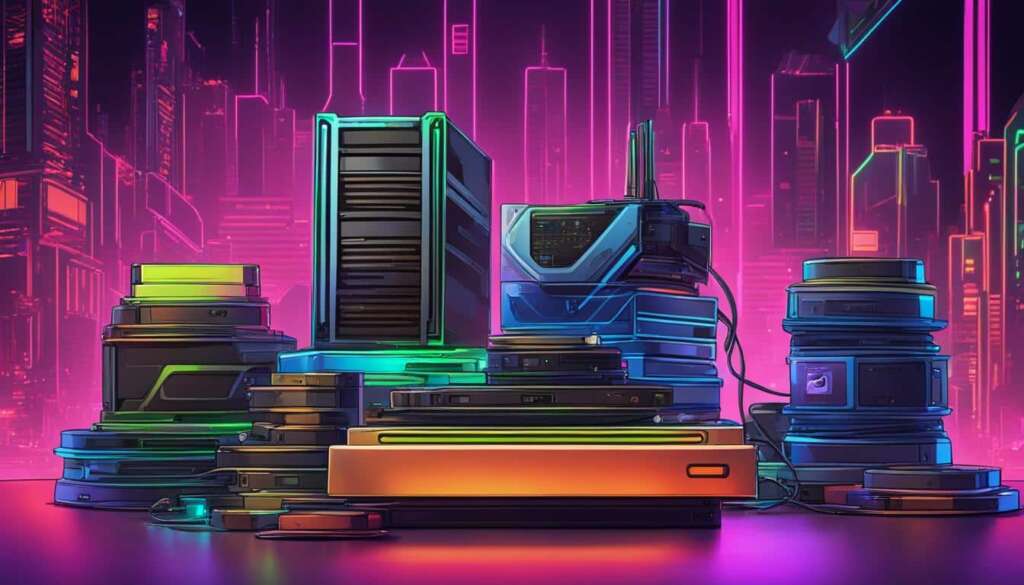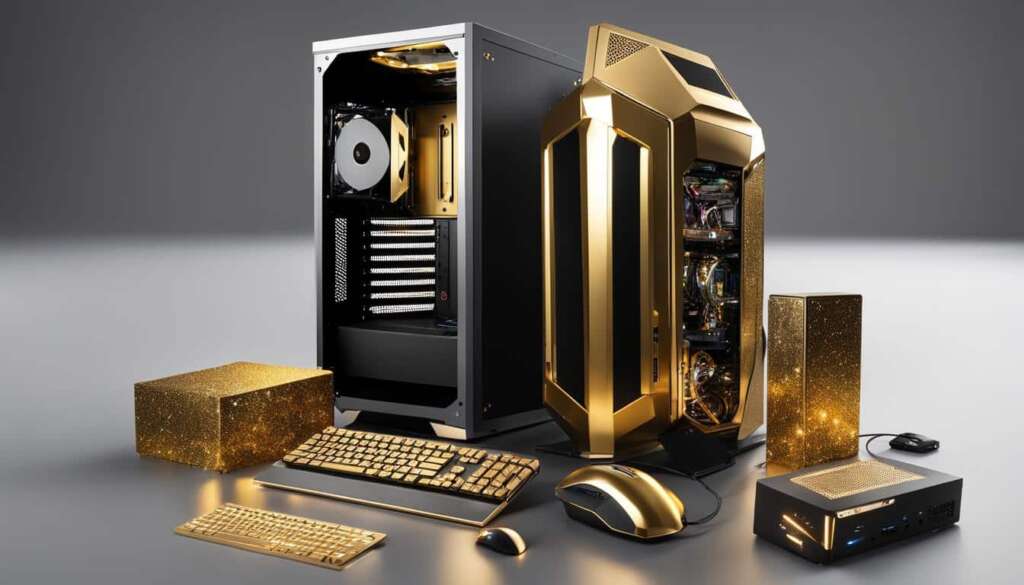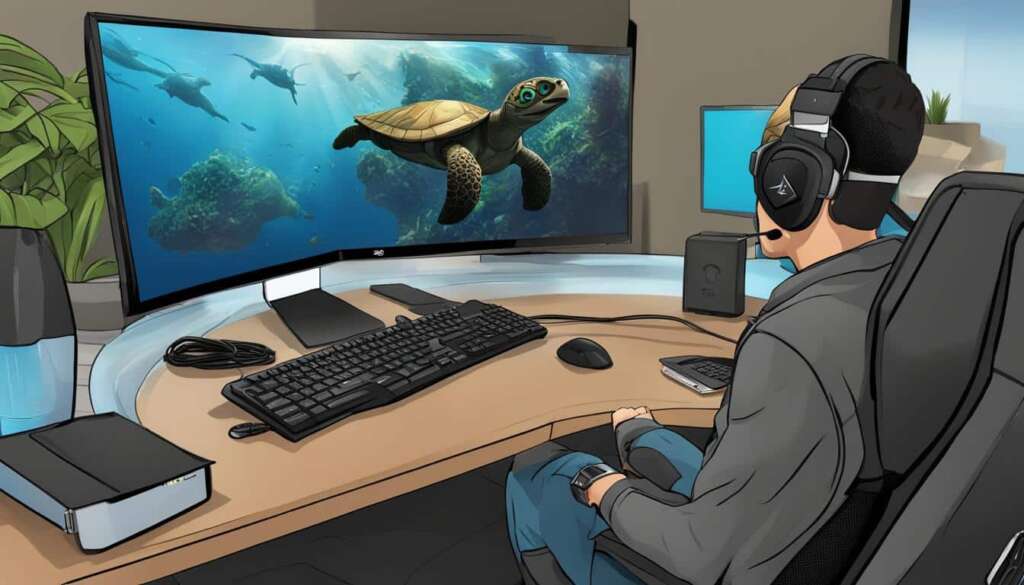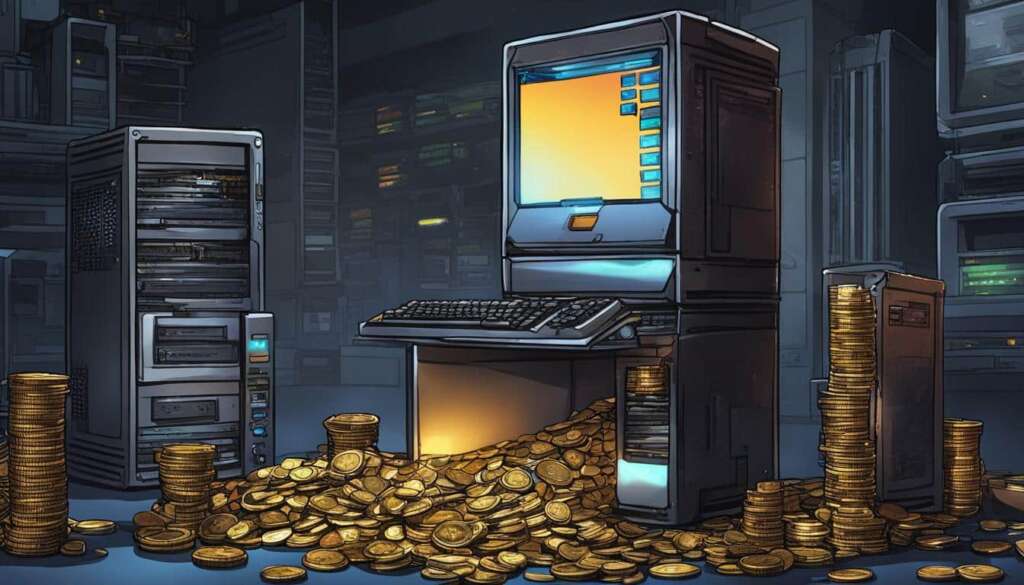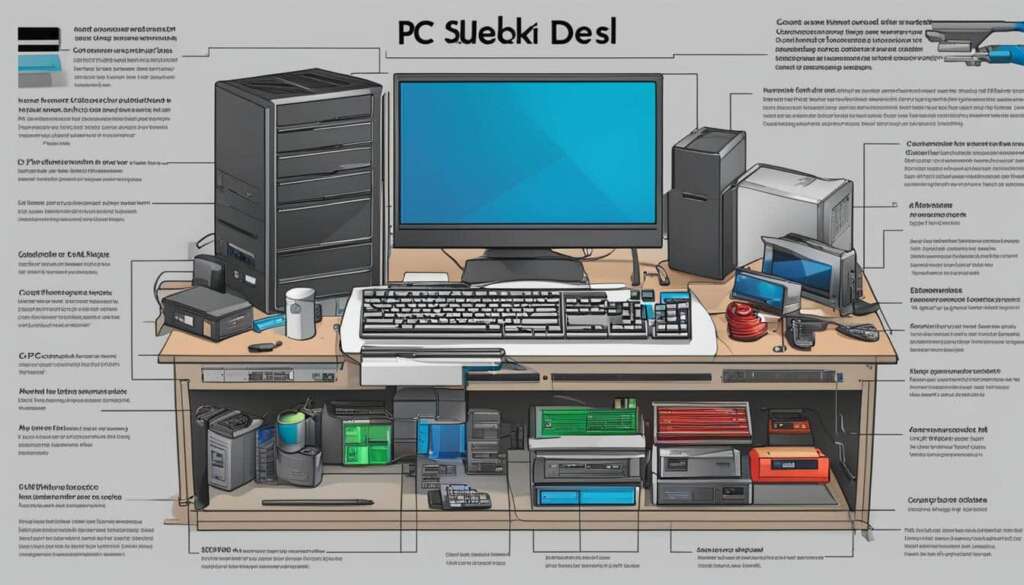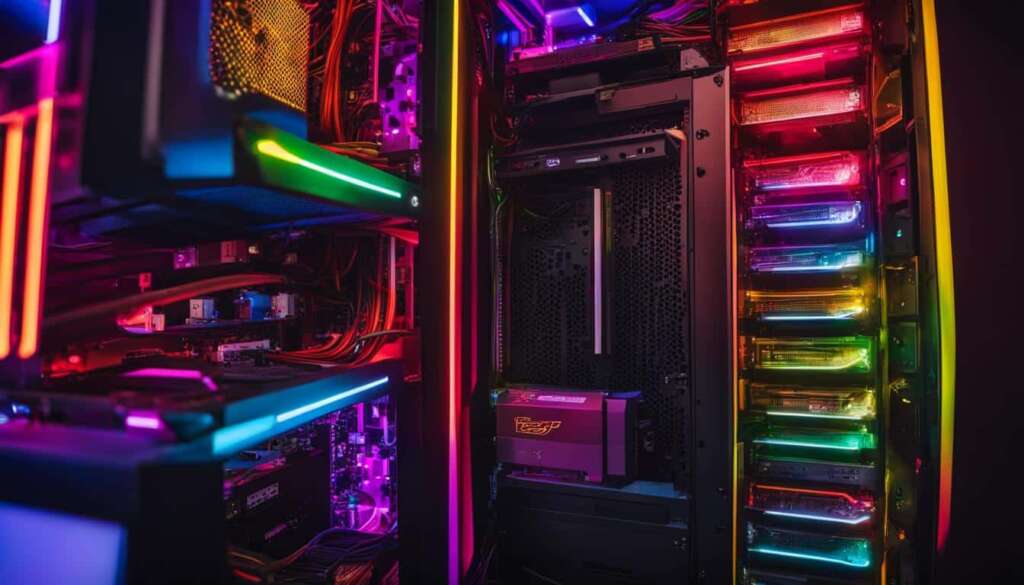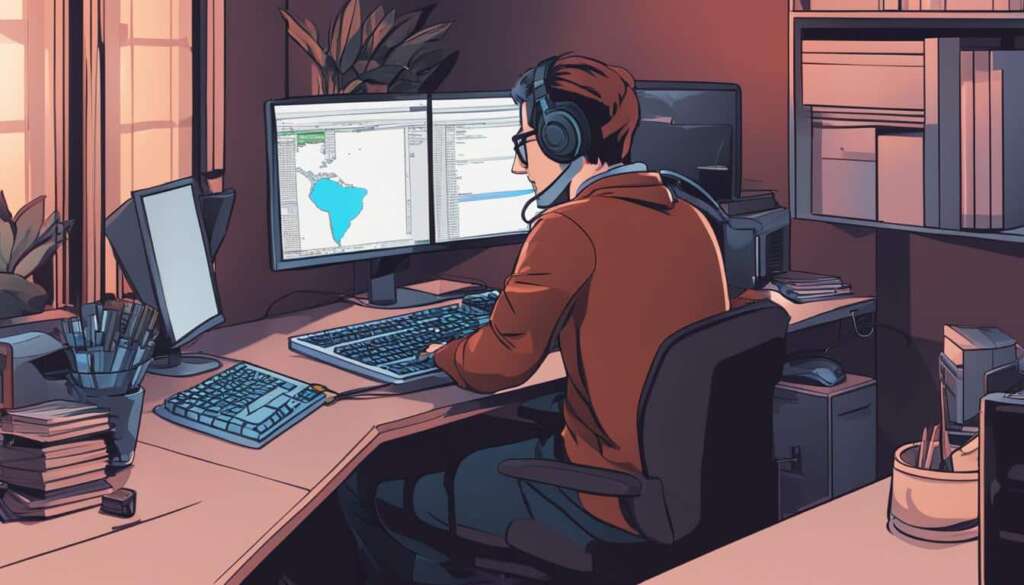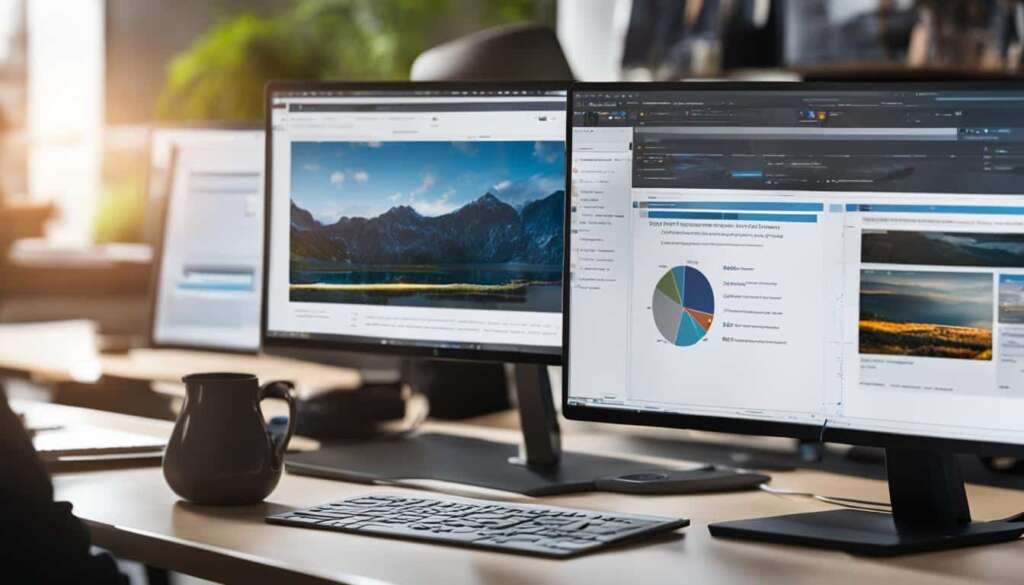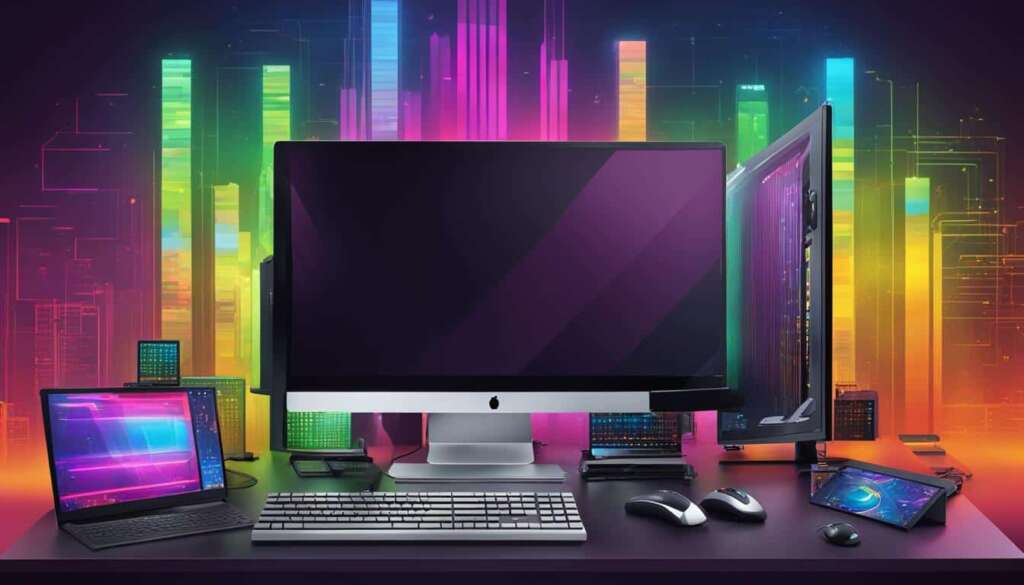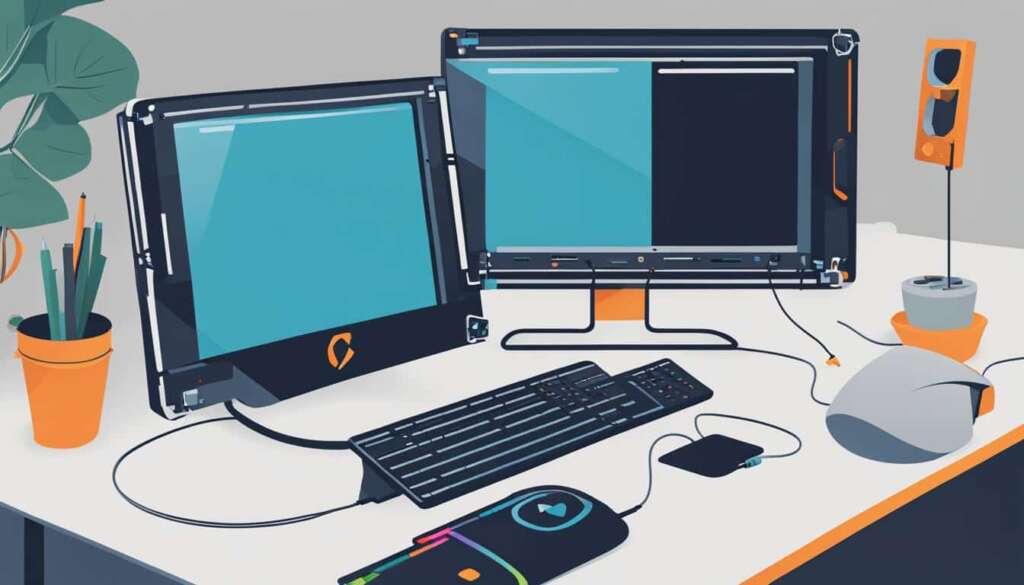Table of Contents
Are you looking to buy a new gaming PC but wondering how much it will cost you? The cost of a good PC in today’s market can vary significantly due to various factors and the fluctuating prices of PC components. Let’s delve into the details and explore what affects the cost of a gaming PC and what you should consider before making a purchase.
In the past, a decent gaming PC would typically cost between £600 and £700. However, with the current volatility in the PC gaming market, these prices can fluctuate dramatically. Factors such as monitor resolution, frame rate, graphics settings, and the types of games you want to play can influence the overall cost of a gaming PC.
It’s important to be cautious and not overspend due to the current pricing trends. Consider your requirements and budget carefully to ensure you make an informed decision and get the best value for your money.
Now, let’s explore the factors that determine what constitutes a “decent gaming PC” in more detail.
What Do You Consider a “Decent Gaming PC”?
The definition of a “decent gaming PC” varies from person to person and depends on several factors. Considerations include the specific games you want to play, the desired screen resolution, refresh rate, and graphics quality settings.
When buying a gaming PC, it’s important to think about the games you want to play and their system requirements. Some games are more demanding than others, with high-end graphics and complex simulations, while others are lighter and do not require as much power. Prioritize the games you enjoy and make sure the PC you choose can handle them smoothly.
Screen resolution is another crucial factor. It determines the level of detail and clarity in your games. Common options include 720p, 1080p, 1440p, and 4K. Higher resolutions provide a more immersive experience but require more processing power and a suitably sized monitor to fully appreciate the visuals.
The refresh rate, measured in frames per second (FPS), affects the smoothness of your gaming experience. Higher refresh rates, such as 144Hz or 240Hz, result in smoother animations and reduce motion blur. However, to take advantage of a high refresh rate, you’ll need a powerful graphics card and monitor that can support it.
Graphics settings also play a significant role in determining the quality of your gaming experience. Games offer various graphics settings, ranging from low to ultra, which affect the level of detail, shadows, reflections, and other visual elements. Higher graphics settings require more processing power, so you’ll need a capable GPU to run games at max/ultra settings.
Considering these factors, the cost of a gaming PC can vary greatly. If you mainly play older titles or less demanding games, you could opt for a more affordable PC, spending around $500 or less. However, if you wish to play modern AAA games at high resolutions and settings, you should be prepared to spend around $1,000 or more. For those aiming to game at 4K with ultra graphics settings and high refresh rates, the cost can approach close to $2,000.
Keep in mind that the more demanding your gaming preferences, the more investment you may need to make in your gaming PC. It’s essential to find a balance between your budget and the performance you desire.
Here’s an overview of factors to consider when buying a gaming PC:
- The specific games you want to play
- The desired screen resolution (720p, 1080p, 1440p, 4K)
- The refresh rate/frames per second (60Hz, 144Hz, 240Hz)
- The graphics quality settings (low, medium, high, max/ultra)
By taking these factors into account, you can make an informed decision and ensure that your gaming PC meets your expectations. Remember, the definition of a “decent gaming PC” is unique to every individual and depends on their specific gaming preferences and budget.
Here’s What You Need for a Gaming PC
To set up a gaming PC, you have several options – you can choose a prebuilt gaming PC, purchase a gaming laptop, or build your own desktop gaming rig. Each option has its pros and cons. A prebuilt gaming PC typically comes with all the necessary components, but you may be limited in terms of customization and component choice. Gaming laptops offer portability but can be pricier. Building your own gaming PC allows for full customization, but it requires more research and knowledge.
The necessary components for a gaming PC include:
- Case or chassis
- CPU processor
- GPU graphics card
- RAM
- Motherboard
- PSU power supply
- Storage drive
- Monitor
- Keyboard
- Mouse
- Audio accessories
The price ranges for these components vary:
| Component | Price Range |
|---|---|
| Case | $70 – $150+ |
| CPU | $130 – $350+ |
| GPU | $250 – $450+ |
| RAM | $50 – $100+ |
| Motherboard | $110 – $180+ |
| PSU | $50 – $120+ |
| Storage Drive | $50+ |
| Monitor | $120 – $300+ |
| Keyboard, Mouse, Audio Accessories | $10+ |
When building your own gaming PC, it’s important to consider the price ranges of these components to estimate your overall budget.
Overall, building your own gaming PC can often be cheaper than purchasing a prebuilt option. However, if customization is less of a priority and you prefer convenience, prebuilt options are available from reputable manufacturers like iBUYPOWER, Skytech, MSI, Alienware, and more.
Is It Cheaper to Build a Gaming PC?
In the world of gaming PCs, the age-old question remains: is it cheaper to build your own or buy a prebuilt system? While there are advantages to both options, building your own gaming PC often comes out on top in terms of cost.
When you build your own PC, you have the freedom to choose each component and take advantage of discounts and sales. This means you can shop around for the best prices and get more bang for your buck. Additionally, building your own PC offers the advantage of customization and future upgrades. You can tailor the components to suit your needs and preferences, ensuring that you get the best performance for your budget.
On the other hand, prebuilt PCs may seem more convenient, but they often come with a higher price tag. Manufacturers need to cover their costs and make a profit, resulting in higher retail prices. In addition, prebuilt systems may use cheaper components to keep costs down, meaning you may not get the same level of quality or performance as a custom-built PC.
It’s worth mentioning that the current supply shortage has affected PC component prices, particularly graphics cards (GPUs). These high-demand items may be more expensive than usual, regardless of whether you choose to build or buy. Therefore, it’s crucial to research and compare prices to ensure that building your own PC is truly cost-effective. Overall, if you’re willing to put in the time and effort, building your own gaming PC can save you money without compromising on performance.
FAQ
How much does a good PC cost?
The cost of a good PC in today’s market can vary greatly due to factors such as the volatility of PC gaming component prices. In the past, a decent gaming PC would typically cost between $600 and $700. However, current fluctuations in the PC gaming market can impact prices significantly.
What factors affect the cost of a gaming PC?
Several factors can impact the cost of a gaming PC, including monitor resolution, frame rate, graphics settings, and the types of games you want to play. Each of these factors influences the overall performance requirements of your PC and can affect the cost accordingly.
What do you consider a “decent gaming PC”?
The definition of a “decent gaming PC” varies from person to person and depends on several factors. Considerations include the specific games you want to play, the desired screen resolution, the refresh rate/frames per second, and the graphics quality settings. Each of these factors can impact the overall cost of your gaming PC.
What are the necessary components for a gaming PC?
The necessary components for a gaming PC include a case or chassis, CPU processor, GPU graphics card, RAM, motherboard, PSU power supply, storage drive, monitor, keyboard, mouse, and audio accessories. Each component has a price range, and the overall cost will depend on the specific components chosen.
Is it cheaper to build a gaming PC or buy a prebuilt one?
In most cases, it is cheaper to build your own gaming PC rather than buying a prebuilt one. Building your own PC allows you to choose the components and take advantage of discounts and sales. It also offers more room for customization and future upgrades. However, prebuilt PCs may be easier and more convenient to set up.


